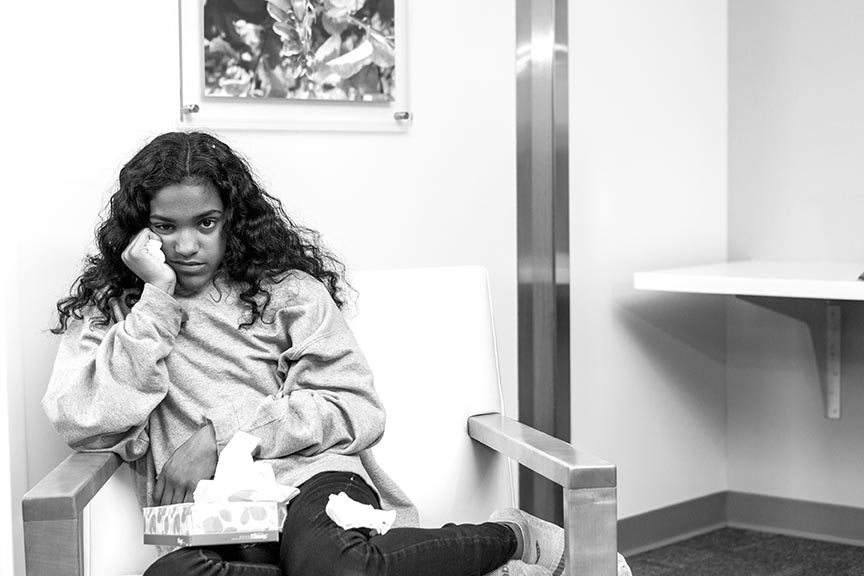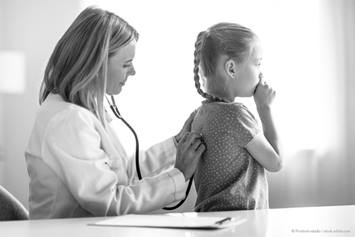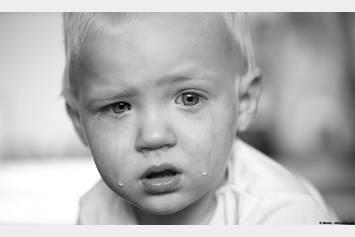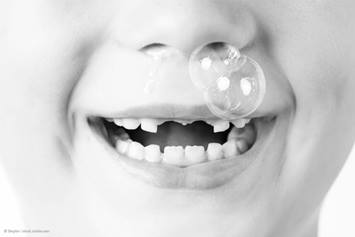RSV Infection (Respiratory Syncytial Virus)
Respiratory syncytial virus (RSV) is a common virus that can cause coughing, sneezing, runny nose, fever and wheezing.
What Are the Symptoms of RSV?
The first signs of RSV may seem like a cold:
- sneezing
- stuffy or runny nose
- cough
- fever
Call your child’s health care provider right away, if your child has any of these signs and symptoms:
- a cold and is less than 6 months of age or is at high risk for RSV
- difficulty breathing:
- wheezing
- coughing
- short, shallow and fast breaths
- skin between the ribs or under the neck pulls in with each breath (retractions)
- lips, tongue or skin color turns blue or gray
- trouble eating, drinking or sleeping
- gets dehydrated (dried out) - decreased number of wet diapers
How Is RSV Diagnosed?
To diagnose RSV, a health care provider will examine your child and do a swab test in their nose. If needed, a chest X-ray will be ordered.
We've Got You Covered This Respiratory Season
Cold and flu season is here. Autumn means falling leaves and respiratory ailments. We’ve compiled resources about cold, flu, RSV and other seasonal conditions that make kids sick this time of year.
How Is RSV Treated at Home?
Since RSV is a virus, antibiotic medicines will not help. Here are some things you can do to make your baby more comfortable:
- For coughing and mucus build up (congestion), use a cool mist vaporizer. The moist air may make breathing easier and reduce coughing. Do not put medicine in the vaporizer. Change the water in it every day and clean it between uses.
- For a stuffy nose, use salt water (saline) nose drops to soften thick mucus. To get the mucus out, use a baby aspirator (suction device) like a bulb syringe or a NoseFrida®.
- For a fever, give:
- Children over 2 months, acetaminophen (Children’s or Infant’s Tylenol®).
- Children over 6 months, acetaminophen or ibuprofen (Children’s or Infant’s Motrin®, Advil®)
- Do not give aspirin or products that contain aspirin to any child.
- Do not give cold and cough medicines. They will not help and should not be given to children younger than age 4.
- Do not give honey to children younger than one year.
- Give lots of fluids.
- Children younger than 12 months should not have fruit juice or water. Instead, breast-feed or bottle-feed small amounts more often.
- Children older than 12 months, give plenty of liquids like water or chicken broth. Limit fruit juice or liquids high in sugar.
- Check your child’s temperature using a digital thermometer. Never use a mercury thermometer. Wash the thermometer well after each use.
- Use only a rectal (in baby’s bottom) thermometer in infants under 3 months of age.
- For infants 4 months of age or older, take rectal, ear or armpit (axillary) temperatures.
- When your child reaches age 4, mouth (oral) temperatures can be taken.
Preventing the Spread of RSV
Children can get RSV more than once. Adults can get it and pass it to their child. If you have a cold, be careful around your baby. Here are some tips to keep RSV from spreading:
- Wash your hands often, before touching your baby and before handling food. Wash your hands after sneezing, coughing, or changing diapers. Ask others to do the same.
- Sneeze or cough into a tissue or into your shirt sleeve, turned away from people.
- Do not share pacifiers, towels, washcloths, toothbrushes, drinking glasses, cups, forks, or spoons.
- Wash your baby’s toys and clothes often.
- Keep people who have colds away from your baby. This includes other family members.
- Do not smoke around your baby. Do not let others smoke around them either.
- Keep your child home from school or childcare when they are sick.
When Should I Call my Health Care Provider?
Call your child’s health care provider if your child:
- seems sick, shows signs of RSV and is less than 6 months of age or at high risk.
- has a cough that lasts more than 4 days or has trouble breathing
- has thick mucus from the nose or mouth that is yellow, green or gray.
- has no energy - seems lazy and does not act like usual, will not eat or drink, does not urinate (pass water) or diapers are not wet for 6 or more hours
- has a fever
- age 3 months or younger, a temperature of 100.4º F (38º C) or higher.
- older than 3 months, a temperature over 102º F (38.9º C) that lasts more than 2 days.
RSV, the Flu and Covid
RSV, the flu and Covid are different viruses, but share some of the same symptoms. RSV and the flu can be very serious in children. However, their symptoms begin differently. RSV usually starts with cold symptoms and the flu usually starts with a high fever. Children with Covid often have mild symptoms or show none at all, but they can also have a fever and vomiting or diarrhea. RSV can get serious very quickly in some children.
Helping Hands Patient Education Materials
Written and illustrated by medical, nursing and allied health professionals at Nationwide Children's Hospital, Helping Hand instructions are intended as a supplement to verbal instructions provided by a medical professional. The information is periodically reviewed and revised to reflect our current practice. However, Nationwide Children's Hospital is not responsible for any consequences resulting from the use or misuse of the information in the Helping Hands.
HH-I-171 | ©2005, revised 2021, Nationwide Children’s Hospital




